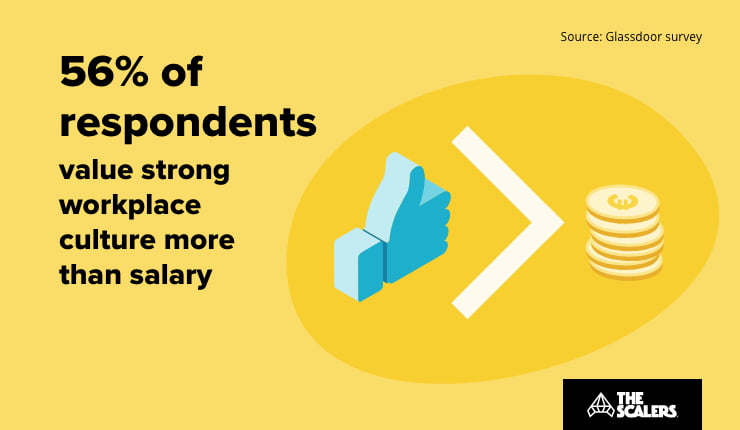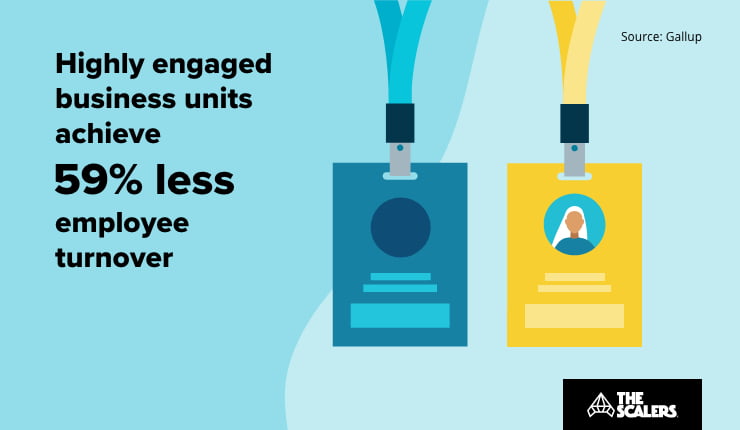Today, it’s not just companies like Google and Microsoft that are building dedicated development teams in emerging tech nations like India. More and more businesses across the globe, irrespective of their size, are warming up to the idea of working with global teams and using the offshore development model to cut costs, improve performance, and increase profits. They’re also leveraging global diversity and bringing together people from different cultures and backgrounds, with unique perspectives on just about everything imaginable.

Check out five practical ideas to help you build a strong spirit in your remote teams
DOWNLOAD INFOGRAPHICHowever, while in theory, this globalisation helps organisations scale up their business, the cultural and societal differences, and the ethical implications of offshoring can throw a major spanner in the works. And that’s why bridging the culture gap in distributed teams is crucial — a situation that can either make or break your offshore operations.

Defining the culture gap
Building an efficient, productive, and successful team is hard enough when everyone shares the same office. When you’re working with an offshore team located halfway around the world, with a diverse cultural and functional background, communication can be tricky. After all, an open-door policy is hard to implement when your team is 10,000 miles away!
What does a culture gap look like?
Let’s consider India — a country whose people are known for their persistence and hard work; it’s an ingrained (and largely positive) aspect of their culture. However, something they are equally well-known for is refusing to say ‘no’.
This isn’t a negative trait, but it is different and definitely a culture gap any Western company needs to bridge. Indian workers typically accept the need to grind, even if it means spending extra hours in work everyday. They love a challenge and are determined to prove themselves, especially when collaborating as part of a bigger team.
In Europe or the US, staff are more likely to say, “Sorry, but I can’t do that, I’ve already got too much on my plate.” Is this team any less hardworking or dedicated than their Indian counterparts? Not at all. They’ve simply been encouraged more, over their lifetime, to speak their mind. Candidness and telling it how it is is seen more as positive, not negative, in the West.

Increase innovation and deliver at speed in the Silicon Valley of Asia
LEARN MOREAddressing the challenge
This is just one example of the difference in culture between countries like India and the US. While it’s not true for everyone, it is broadly accurate. Problems arise when CEOs, managers, and even bottom-rung colleagues fail to understand or connect with new employees.
It’s easy to get off on the wrong foot or develop poor expectations. This kind of “culture gap” can take a brilliant hiring strategy such as building a specialist offshore team and make it calamitous.
A Global Culture Survey conducted in 2018 showed that roughly 65% of leaders and employees believed that the organisational culture of their company is more important to them than any strategy or operating model.
Unfortunately, more than 80% also agreed they weren’t happy with their company culture. This suggests that an unaddressed culture gap may be more common than we tend to think. While this gap doesn’t exist only among remote teams, it can be more pronounced here than with local teams.

Bridging the cultural gap effectively
When working with distributed teams, there are a few simple steps that you can take towards bridging the culture gap. Some of them include:
1. Acknowledge and appreciate the cultural differences
Start by addressing the elephant in the room: your team now contains more diverse cultures than before. Cultural diversity manifests in different forms: language, behavioural differences, values, and even the meanings attached to specific words and actions.
Before you can bridge the culture gap, you need to learn what it’s made of.

All you need is a good internet connection and a Zoom account. Get your new colleagues to share their cultural background, expectations for their job, how they work – whatever seems important.
While an elementary exercise, simply encouraging this candid conversation can help your long standing team understand its new, foreign colleagues – and vice versa. You might discuss topics like:
- Approach to conflict of interest
- Approach to work and deadlines
- Personal conduct
- Long-term expectations
You could even go the extra mile and visit your offshore team in person. This could be a great chance to chat face-to-face, get to know each other, and build a more personal connection.
2. Over-communicate until everyone is comfortable
When working with a remote team, you can’t just corner someone at their desk when you need something done. Despite perfectly good communication tools, misunderstandings can be a regular issue.
But why?
For a start, body language accounts for roughly 55% of all communication. This means that the tone of a text or the formality of an email is left entirely open to misinterpretation. Most of us have been there in our personal lives, too.
What can you do?
Be prepared to adapt your soft skills. Even if totally fluent in English, your new colleagues might miss subtle meanings or misinterpret something because of your specific word choice because of the culture gap. Indians are known to wear their hearts on their sleeves, which means that constructive criticism can be harder to take.
Rather than saying, “I don’t like how you’ve approached this task at all. Have you considered this approach instead?”, you can say “Hey, that’s not bad, but here’s how I think you can do this task better’.
Particularly in the early days, framing your sentences the right way makes a huge difference. Dedicate time and effort to communicating as clearly as possible. Also refrain from being overly critical: even if it’s frustrating, both sides should be candid without aggression.
From the remote worker’s perspective, they must accept the need to request repeat instructions, ask for help, and learn to say no. Consider checking in regularly to ensure everyone is on the same page.
By over-communicating, you can establish a collaboration that is built on transparency and honesty. It’s better to start slow and to start well than to find yourself scrambling and frustrated a few months down the line.

3. Conduct alignment meetings to standardise everything
With an in-house team, it’s important to be organised. But while building a remote team, it is absolutely crucial.
If you have ten people with ten different ideas on how something should be done, it’s a recipe for disaster. Alignment meetings can go a long way in establishing norms and rules throughout your organization. Everyone has their own approach to tasks, problems, and hitting deadlines. In your company, however, everyone needs to be on the same page.
Apply processes and training across the company
Standardise processes, document templates, task management systems, the structure and frequency of weekly meetings — everything that can be, should be standardised.
Most of this is necessary for companies of a certain size anyway. With a remote team, that goes double. You can even offer training on understanding cross-cultural differences for your staff to bridge the culture gap. Again, go to your workforce for feedback. Some concepts may sound good in theory, but fail to work in practice.

How we helped a FinTech scale its data insights team to an 85-person R&D hub in Bangalore
DOWNLOAD CASE STUDYCross-cultural teams are on the rise all over the world, for all number of reasons. This presents challenges, but also unprecedented opportunity. With a little effort, the cultural barriers of building remote teams can be overcome without disruption.

At The Scalers, we pride ourselves on building efficient and successful cross-cultural teams. Based in Bangalore but with strong European leadership, we’re perfectly placed to do so.If you’re interested in building a remote team for your business, we’d love to talk to you. You can schedule a call with one of our consultants by filling out the contact form.
















